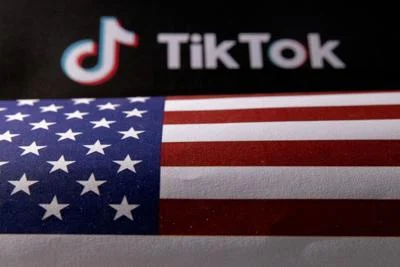In a move that could have far-reaching implications for social media and data privacy, the U.S. House Energy and Commerce committee has unanimously approved a bill that paves the way for a potential nationwide ban on TikTok. The legislation, which passed with a resounding 50-0 vote, gives TikTok's parent company, ByteDance, a 165-day deadline to divest the popular short-video app. Failure to comply would result in a sweeping prohibition, preventing app stores like those operated by Apple and Google from offering TikTok for download, and barring web hosting services from supporting ByteDance-controlled applications.
This bold legislative action represents a significant escalation in the ongoing battle between the United States and China over data privacy, national security, and technological supremacy. At the heart of the matter lies a deep-rooted concern among U.S. lawmakers that TikTok's ties to its Chinese parent company pose an unacceptable risk to American users' data and national security interests.
Citing classified briefings on these concerns, proponents of the bill argue that the app's Chinese ownership raises the specter of potential data exploitation, foreign influence operations, and even surveillance on American soil. In an era where personal data has become a valuable commodity and a potent tool for nefarious actors, the fear of TikTok's user data falling into the hands of adversaries like China has fueled a growing sense of urgency among lawmakers.

ByteDance and TikTok, however, have mounted a fierce defense against the proposed ban. They contend that the legislation infringes on Americans' First Amendment rights and would directly harm millions of businesses and content creators who rely on the platform as a vital source of income and creative expression. In a bid to mobilize public opposition, TikTok has even prompted some users with notifications urging them to contact their representatives in Congress.
Despite these efforts, the bill has garnered significant bipartisan support, with the White House and House Speaker Mike Johnson firmly backing the measure. Its next hurdle will be a floor vote in the House of Representatives, scheduled for the following week. However, its fate in the Senate remains uncertain, as there is currently no companion bill, and the chair of the Senate Commerce Committee has yet to commit to advancing the proposal.
Critics of the bill, including civil liberties advocates and some Democratic representatives, have raised concerns about the potential implications for free speech and privacy rights. They argue that the legislation could set a dangerous precedent by granting the government sweeping powers to undermine online platforms, potentially opening the door for further erosion of digital freedoms.
Nonetheless, proponents of the bill remain steadfast in their conviction that the measures are necessary to safeguard Americans from foreign surveillance, influence operations, and the misuse of their personal data. They emphasize that the legislation targets TikTok's ownership structure rather than the content shared on the platform, making it a narrowly tailored response to a specific national security concern.
As the debate rages on, the potential consequences of a TikTok ban extend far beyond the app itself. It could fundamentally reshape the social media landscape, ushering in a new era of heightened scrutiny and regulation for platforms with foreign ownership ties. Additionally, it could escalate tensions between the United States and China, exacerbating an already strained relationship between the two superpowers.

Moreover, the ban raises complex questions about the role of government in regulating digital spaces and the delicate balance between national security imperatives and individual privacy rights. While proponents argue that the measures are necessary to protect American interests, critics warn that unchecked government overreach could erode the very freedoms that underpin a vibrant democratic society.
As the bill advances through the legislative process, all eyes will be on the Senate, where its fate will ultimately be decided. Regardless of the outcome, the TikTok saga has ignited a crucial dialogue about the intersections of technology, data privacy, and geopolitics in the 21st century.
In an increasingly interconnected world, where digital platforms transcend borders and the flow of data knows no boundaries, the challenge of balancing national security concerns with individual liberties and the free exchange of information has never been more pressing. As policymakers grapple with these complex issues, it is imperative that they approach them with a nuanced understanding of the far-reaching implications at stake.

